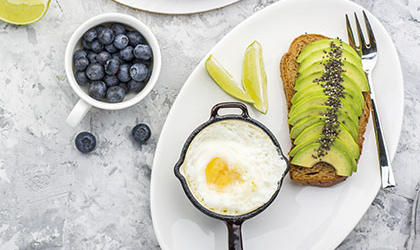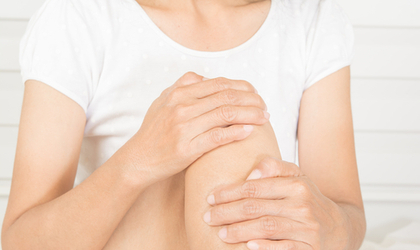
The postpartum period is a joyous and celebratory time. But it’s also a time of significant emotional and physical upheaval. Looking after yourself will help rebuild your strength, encourage healing, and adjust to life with a baby. It’s an absolute priority.
Get as much rest as you can
Babies have wildly different body clocks to their adult counterparts. A newborn typically wakes every three hours to be changed, comforted or nursed. Even if this isn’t your first baby, such a demanding routine can leave new mums overwhelmed with exhaustion.
Though a solid eight hours of sleep probably won’t be on the cards for several months, there are still ways to sneak more rest into your baby-orientated schedule. Firstly, try to clock some z’s when your baby sleeps, which may only be a few minutes here and there, but they all add up.
Additionally, ensure you’re relieved of all duties besides feeding the baby and looking after yourself. Enlist an extra pair of hands – be it a mother, friend, or neighbour – to support other areas of the domestic sphere. Never underestimate how helpful it can be for someone to unload the dishwasher, run errands, or do the laundry when you’ve got a newborn in the house.
Finally, consider having your baby’s cot near your bed for easy feedings at night to save you time and steps (literally!).
Try to make sensible dietary choices
Though it can be tempting to eat anything and everything in the hope it will fight postpartum exhaustion, implementing healthy eating habits from the get-go can speed recovery, increase energy levels, and support overall wellbeing.
Nursing mums require an extra 300 calories daily to sustain an optimal milk supply. Ideally, these calories should be from nutrient-dense sources. You may wish to have six small meals over a day. This way, you’ll eat when comfortably hungry – not starving.
As far as macronutrients go, make a conscious effort to get enough protein from high-quality sources, including lean meat, eggs, tofu, and legumes. Protein is essential for energy, muscle recovery, and milk production.
To sustain round-the-clock baby demands, turn to complex carbohydrates like quinoa, brown rice, oats, and wholegrain bread, which spike glucose levels gradually and provide a slow release of energy.
Healthy fats are important, too. Oily fish, seeds, avocados, extra virgin olive oil, and walnuts will help your body produce nutritious breast milk for your growing baby.
Finally, don’t forget fruit and veggies. These plant foods contain antioxidants, iron, calcium and other powerful nutrients that help your postpartum body heal. Quick wins include citrus fruits, blueberries, sweet potatoes, broccoli, and kale.
Focus on specific nutrients
Beyond the nutritional basics, you also need to monitor your intake of the nutrients outlined below, especially if breastfeeding.
Iron
You lose considerable iron during childbirth, so rebuilding your mineral bank is essential to support your energy production, cognitive function, and immunity. If you’re breastfeeding, your iron stores will provide your baby with a steady supply to help their development.
You can find iron in red meat, oysters, clams, liver, green leafy vegetables, pulses, seeds, and dark chocolate. Combining iron with a serving of vitamin C – naturally present in lemon, cabbage, broccoli, spinach, and tomatoes – can further support absorption.
Aside from increasing dietary iron, you may also wish to take a supplement to stay on top of your intake after birth.
Vitamin B12
Vitamin B12 supports energy production, red blood cell development, and DNA synthesis. Studies suggest low maternal vitamin B12 status may lead to breastfed babies experiencing developmental delays (1).
The best sources of vitamin B12 derive from animals like red meat, liver, salmon, and eggs. You can also find small amounts in plant-based foods, including mushrooms, yeast extract, and fortified cereals.
That said, it’s challenging to get enough vitamin B12 from food alone – especially for vegans – so we recommend supplementing with it throughout postpartum to support you and your baby.
Omega-3 fatty acids
Babies of mothers with higher concentrations of the omega-3 fatty acid, docosahexaenoic acid (DHA), in their breast milk, report greater vision and brain development (2). Even if you’re not breastfeeding, a plentiful intake of DHA in postpartum may support your mood and overall wellbeing (3).
Oily fish (salmon, anchovies, and mackerel) are the richest sources of omega-3 fatty acids like DHA. Official guidelines recommend eating 2 servings of oily fish weekly to support your consumption (4).
Plant foods, including walnuts, chia seeds, and flaxseeds, contain alpha-linolenic acid (ALA), another essential fatty acid converted to DHA in small amounts in the body.
Still, ensuring a reliable intake of DHA in postpartum can be difficult, so it’s worth taking a high-strength fish oil or vegan alternative derived from plant-based microalgae to cover any shortfalls.
Choline
Present in breastmilk, choline is crucial for infant brain and nervous system development, so replenishing your stores is essential (5).
Although you can find choline in meat, poultry, fish, eggs, dairy, nuts, seeds, and whole grains, it can be hard to meet the increased need in postpartum. As such, you may wish to take supplemental choline to plug any nutritional gaps.
Vitamin D3
Vitamin D3 is important at every life stage, but it’s especially critical in postpartum. Not only does it support immunity, bone health and overall wellbeing for new mums, but it also contributes to the development of bones and teeth in breastfeeding infants (6).
The best dietary sources of vitamin D3 include liver, fatty fish like salmon and tuna, egg yolks, and fortified dairy products. You can also synthesise vitamin D3 through sun exposure. You need around 15 minutes of direct sunlight daily. But this can be difficult in the UK between October and March.
The NHS recommends breastfeeding women take a vitamin D3 supplement containing 10µg throughout postpartum to safeguard levels.
Iodine
Iodine supports infant brain development and physical growth (7). However, many breastfeeding women fall short of this essential trace mineral, especially those on plant-based diets.
You can find iodine in seafood, seaweed, milk, yoghurt and cheese. Still, we recommend supplementing with iodine to help you meet the increased requirements in postpartum.
Consider a bespoke multivitamin
You have a lot on your plate with a newborn. If you want one less thing to worry about, you may want to take a high-strength, comprehensive multivitamin. It’s an easy way to ensure a reliable intake of the most important postpartum nutrients – vitamin D3, vitamin B12, iodine, iron, and choline – to support your health and your baby's development.
Don’t stress about weight loss
Unfortunately, new mums are still bombarded with subliminal messaging about losing their baby weight quickly. Celebrities who shed their pregnancy pounds are celebrated and pinned up as role models. But this narrative is toxic and damaging.
Gaining weight in pregnancy is healthy and normal. It takes you nine months to grow a tiny human inside you; your body isn’t going to miraculously ‘bounce back’ overnight. Extreme dieting and rapid weight loss can also be harmful to both you and your baby, particularly if breastfeeding.
Exercising regularly and making healthy dietary choices will help your body return to its pre-pregnancy state naturally. But it takes time, so be patient and kind to yourself.
You can learn more about losing weight safely and sustainably after pregnancy.
Hydrate
Alongside balanced meals, it’s crucial to watch your fluid intake, especially if nursing, as you can become dehydrated quickly.
Aim for 8-10 large glasses of water daily to keep you adequately hydrated. It might help to keep a jug of water beside your bed or breastfeeding chair, too.
If you aren’t keen on neat water, add sliced citrus fruits, berries or mint. Herbal teas also count towards your intake.
Make time for exercise
Many new mums become preoccupied with exercising to lose their pregnancy weight, but using physical activity to improve overall fitness and wellbeing is much more important. Of course, with a newborn, the main obstacle is time – or, indeed, a lack of it – so don’t be afraid to ask loved ones for help to free you up.?
By exercise, we don’t mean jumping on the running machine the minute you leave the labour ward. Be gentle with yourself. Honour when you feel ready to start moving again. If you had an uncomplicated vaginal birth, this may be a few days after. However, if you had a C-section, you’ll have to wait a few weeks before working out.
Always start with light movement like walking or restorative yoga. Over time, you could build up to 30 minutes of exercise five days a week. You could even do two 15-minute sessions if that’s more doable.
For reference, you can swim and practice yoga 6-8 weeks after birth and perform higher impact activities, like jogging, aerobics, and strength training, after 3-6 months.
Accept that things might feel bumpy
No new mother is immune to stress. The physical trauma of birth. The surging hormones. The breastfeeding. The broken sleep. The 24/7 baby care. It can be overwhelming.
Many women experience dips in their mood after birth, often called the ‘baby blues’, which is normal. The good news is this cloud should lift after two weeks, and you should feel more or less yourself six weeks into motherhood. Still, always give yourself permission to feel your emotions. Allow yourself to cry. Don’t be judgemental. Accept things might feel bumpy.
If anxiety and low mood persist, have a chat with a healthcare professional. Postnatal depression affects a small percentage of new mums, and the sooner you voice your concerns, the sooner you can receive treatment.
Prioritise self-care
Your newborn isn’t the only one who needs love and care; you need it, too. Carving out time for self-care might feel impossible, but it’s necessary. Here are some ways to honour your needs as a new mum.
-
It takes a village to raise a child: enlist your family, friends, neighbours, and co-workers to help with baby chores so you can have some time to yourself.
-
Create a cosy corner in your home where you can decompress and unwind.
-
Allow yourself to indulge in a favourite hobby – read, knit, or listen to music. Even grabbing five minutes here and there can be restorative.
-
Get out of the house and go for a walk, pushchair in tow.
-
Spend a few minutes daily to meditate and reflect.
-
Don’t underestimate the healing power of a bath!
-
Be kind to yourself! Parenting is hard.
Find out more
If you found this article on looking after yourself in postpartum useful, you can find similar guidance on our health blog. Alternatively, please get in touch with our team of expert Nutrition Advisors, who are on hand to provide free, confidential advice.
References:
-
Keskin EY, Keskin M, Karaibrahimo?lu A, Association of Maternal Vitamin B12 Status with Infant Findings and Neurodevelopment in Vitamin B12-Deficient Breast-fed Babies. J. Pediatr. Hematol. Oncol. 2022;44:e91–e95.
-
Supplementing Babies' Formula With DHA Boosts Cognitive Development, Study Finds." ScienceDaily. ScienceDaily, 17 September 2009.
-
Freeman MP, Hibbeln JR, Wisner KL, Brumbach BH, Watchman M, Gelenberg AJ, Randomized dose-ranging pilot trial of omega-3 fatty acids for postpartum depression. Acta Psychiatr Scand. 2006;113(1):31-5.
-
Fish and shellfish. [online] NHS. Available at: https://www.nhs.uk/live-well/eat-well/food-types/fish-and-shellfish-nutrition/
-
Obeid R, Derbyshire E, Schön C, Association between Maternal Choline, Fetal Brain Development, and Child Neurocognition: Systematic Review and Meta-Analysis of Human Studies. Adv Nutr. 2022;13(6):2445-2457.
-
Dhamo B, Miliku K, Voortman T, Tiemeier H, Jaddoe VW, Wolvius EB, Ongkosuwito EM, The Associations of Maternal and Neonatal Vitamin D with Dental Development in Childhood. Curr Dev Nutr. 2019;3(4):nzy100.
-
Harvard T.H. Chan (2021). Iodine. The Nutrition Source. Available at: https://www.hsph.harvard.edu/nutritionsource/iodine/.
You Might Also Like

Olivia
Olivia Salter has always been an avid health nut. After graduating from the University of Bristol, she began working for a nutritional consultancy where she discovered her passion for all things wellness-related. There, she executed much of the company’s content marketing strategy and found her niche in health writing, publishing articles in Women’s Health, Mind Body Green, Thrive and Psychologies.
View More



